GCSE in England UK for international students
This content was developed and approved with active participation of Russell Hobby.
In the process of preparing the material, we referenced the following sources:
- https://www.finder.com/uk/gcse-statistics
- https://www.bbc.com/news/education-48993830.
-
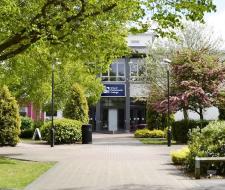
-
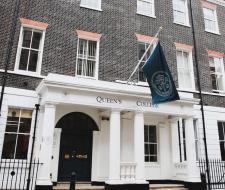
-

-
 Program namedateAgeFeesShow all courses (3)GCSEAll year round14-16Check with our specialists
Program namedateAgeFeesShow all courses (3)GCSEAll year round14-16Check with our specialists -
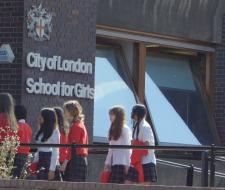
-
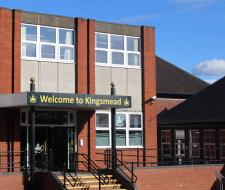 Program namedateAgeFeesShow all courses (3)GCSEAll year round14-16Check with our specialists
Program namedateAgeFeesShow all courses (3)GCSEAll year round14-16Check with our specialists -

-

 United KingdomNewcastle, UKCurrently watching: 1Program namedateAgeFeesShow all courses (4)GCSELast booking 2 weeks agoAll year round16+Check with our specialists
United KingdomNewcastle, UKCurrently watching: 1Program namedateAgeFeesShow all courses (4)GCSELast booking 2 weeks agoAll year round16+Check with our specialists -

-
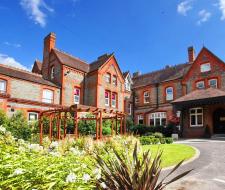
General Certificate of Secondary Education is a British program of middle school, finalizing mandatory stage of education. The target audience of the course is foreign students, whose age is 14-16 years. The program lasts for two years, during which mastering of compulsory and elective disciplines is stipulated. Upon completing studies, exams are taken, under its results students receive a GCSE certificate. High grades allow graduates to continue their studies in pre-university educational programs (A-Level or IB), and then enter universities all over the world.
GCSE in the UK for schoolchildren is an excellent opportunity to obtain academic experience in a new country. The high quality of the program and its prestige guarantee further successful pursuing education in Britain and becomes the key to fundamental knowledge and confident English.
Top colleges and schools with GCSE in Great Britain provide the students with the opportunity to choose additional subjects, complying with future goals and academic preferences. Having a certificate of secondary education, a graduate will pursue learning these disciplines at A-Level or IB.
The foreign students aged 14 can enroll on GCSE program. Some schools in the UK offer a shortened variant – One Year GCSE, lasting for 1 year, which is available to students aged 15. The content of the program is no different from a two-year course, but it takes place in an intensive mode. Excellent knowledge of English and high grades in academic subjects are required for admission.
The special program IGCSE is available for the foreign students, which has an international status and is maximally adapted to the needs of children from different countries of the world.
Alternative destinations
GCSE in the UK: full guide
Specifics of Studying for GCSE in the UK GCSE, which stands for General Certificate of Secondary Education, is a rigorous academic program in the UK tailored for students aged 14 to 16. It involves the deep study of 5 to 10 subjects. English and mathematics are universally compulsory, while some schools also mandate science, IT, and English literature. One of GCSE's strengths is the flexibility it offers; students typically select 4-6 subjects themselves, with guidance from teachers, education consultants, and parents. Subject availability can vary based on what individual schools offer and the student's aspirations and interests. Common choices encompass foreign languages, humanities, business courses, and arts.
Upon completion, students sit for exams in each subject to attain their secondary education certificate. Grades range from A* (highest) to G (lowest). A unique feature of traditional GCSE is that coursework quality can influence final grades. In contrast, the IGCSE scores are purely exam-based, with A being the pinnacle, not A*.
For progression to advanced courses like A-level or the International Baccalaureate, a minimum of grade C in 5 subjects is typically needed.
Requirements for admission to GCSE
Enrolment Requirements for GCSE Schools in the UK for foreign students aspiring to join GCSE program, lasting for 2 years, concern that the minimum age is 14 years old, and for a condensed one-year course, 15. Moreover, applicants should:
-
Present academic reports from the last 2-3 years.
-
Demonstrate English language proficiency.
-
Undergo tests in specific disciplines, which may include chemistry, physics, and biology.
The exact subjects and pass marks can vary by school. It's worth noting that one-year GCSE programs often have stricter English proficiency requirements than their two-year counterparts.
To optimize chances of GCSE success, starting English immersion early—around age 7 or 8—is recommended. This can involve language courses, tutors, visits to England, and exposure to English media. Alternatively, summer programs in UK language schools can be beneficial for honing English skills and gaining familiarity with British culture.
A year prior to enrolment, it's crucial to gear up for entrance exams and accustom oneself to the UK's education system, often involving tailored study programs and mock interviews.
Top GCSE Schools in the UK
- Queen Ethelburga's College
- Abbey DLD College London
- CATS College Canterbury
- Mount Mill Hill
- Sevenoaks School.

What do parents consider first when looking for a school in the UK?
Think about which school is perfect for your child. Different schools offer different specialties – someone is strong in art, drama, sports, certain subjects. There are selective schools, and more loyal ones, which are ready to develop any strong side of each child. If parents don't know much about the UK education system, you can focus on the league table and the results of the GCSE and A-level exams. If you are already more "savvy", consider the location and size of the school, the number of students, the availability of an EAL course, compliance with your personal academic requirements, additional activities.
Cost and fees to study GCSE in UK
Understanding the GCSE Framework: The General Certificate of Secondary Education (GCSE) is a qualification taken by students aged 14 to 16 in England, Wales, and Northern Ireland. It's a fundamental academic program, as it usually determines disciplines, which will be studied further in the A-level program. Optionally, students can choose vocational courses. As with most educational programs, applicants and their guardians should understand the all costs concerning obtaining a prestigious education.
State Schools vs. Independent Schools: Great Britain is featured by the fact that most students attend GCSE programs in public schools, where tuition is free. However, examination fees might still apply. These expenses vary, which is stipulated by the exam board and the discipline. However, in case of pursuing education in state institutions, these costs are usually compensated by the school. On the other hand, independent (private) schools charge tuition fees, ranging widely. These fees typically range from £10,000 to £30,000 per annum, though top-tier schools, especially those with boarding facilities, can charge even more. It's important to note that in most private schools, the tuition fee often includes GCSE examination costs.
Additional Costs: Whether in a state or private school, there can be additional costs associated with studying for GCSEs. These expenses typically concern textbooks, revision guides, field trips, equipment for certain disciplines (e.g., Art or Design Technology), and uniforms. Some schools provide these materials as part of their offering, while in others, students might need to purchase them separately.
External Candidates: For various reasons, some students decide on taking their GCSEs as external candidates. For this option, students can choose a role of distance learning providers or as private candidates at exam centers. In these cases, the examination fees are a direct cost to the student or their guardians. The costs can range, depending on the exam board, but fees typically lie between £30 to £200 per subject. This can be more expensive if the subject requires additional components like coursework moderation.
Financial Assistance: For those studying in independent schools, there are often scholarships, bursaries, or other financial aid options available. These are based on merit, need, or both, and they can significantly offset the costs associated with GCSE studies. It's always recommended to inquire and apply early for such opportunities.
Deciding on attending GCSE courses, there are variations in cost concerning the education. Typically, the type of institution, the individual needs of a student, and any additional support materials may influence the total price of studying. While state education provides a largely cost-free route, those considering independent schools or external routes should be aware of and plan for the associated fees.
What are GCSEs?
GCSE (General Certificate of Secondary Education) is a qualifying examination that British pupils take at the age of 16 after completing compulsory education. It is a key stage in the UK education system.
How many subjects are usually included in a GCSE exam?
Students will normally take between 8 and 12 subjects at GCSE. However, this number can vary depending on the school and the student. GCSE subject options include math, English, science, foreign languages, art, history, geography and many others. Students can choose subjects according to their interests and future career plans.
How long does GCSE preparation take?
Preparation for GCSEs usually starts at the beginning of Key Stage 4 (at around age 14) and continues for two years. This allows students to study their chosen subjects in depth and prepare for examinations.
What are GCSEs with External Assessment?
GCSEs with external assessment include examinations and teacher-assessed work, but the final grade is determined by external examiners. This ensures the independence of the assessment. GCSE externally assessed GCSEs can be taken through regular examinations, where students take formal tests, or through mixed assessment, which includes teacher and external examiner assessment.
What are GCSEs with Internal Assessment?
GCSEs with internal assessment means that assessment is done internally, usually through coursework, projects and practical assignments. GCSEs with internal assessment can be more flexible and provide students with the opportunity to study subjects in greater depth, as the assessment is carried out by their own teachers who can better understand their individual needs.
What is Advanced Subsidiary (AS) Level?
AS Level is part of the A-level course and is half of the full A-level course. These exams allow students to study subjects in more depth and prepare them for the more advanced A-level exams.
Can I take GCSE exams if I don't live in the UK?
Yes, GCSEs are available to students from other countries through local test centers. Some GCSE exams can be taken online through specialized platforms or online programs. It is important to find out about the options available and registration deadlines.
What should I do if I have a problem in my GCSE exam?
If problems arise during an examination, such as illness, family circumstances or other urgent situations, it is important to contact the institution immediately and seek advice and support. In some cases, students may be eligible to retake the exam under special conditions.
What preparatory courses are available for international students wishing to take GCSEs?
There are specialized preparatory courses and programs for international students to help them adapt to the British education system and prepare for GCSEs. These programs usually include English language and GCSE subjects.
Can I use my GCSE results to apply to university abroad?
Yes, GCSE results can be recognized by many universities abroad as an entry qualification. However, requirements may vary, so it is important to contact the specific university and check their admissions policy.
Best boarding schools in England by GCSE 2026
| # | A + A* % | Name | Day/Board | Boy/Girl | Day £ | Board £ |
|---|---|---|---|---|---|---|
| 1 | 98.61 | Westminster School | Both | Co-ed (Boys Only 13 - 16) | 31,491 | 41,607 |
| 2 | 97.60 | Wycombe Abbey School | Boarding | Girls | 30,270 | 40,350 |
| 3 | 96.66 | St Paul's School | Both | Boys | 25,908 | 38,991 |
| 4 | 94.97 | St Mary's School - Ascot | Both | Girls | 28,590 | 40,140 |
| 5 | 93.93 | Brighton College | Both | Co-ed | 25,410 | 50,040 |
| 6 | 92.98 | Eton College | Boarding | Boys | 42,501 | |
| 7 | 92.52 | Tonbridge School | Both | Boys | 31,587 | 42,105 |
| 8 | 90.30 | Cheltenham Ladies' College | Both | Girls | 29,280 | 43,170 |
| 9 | 87.00 | Sevenoaks School | Both | Co-ed | 27,585 | 42,084 |
| 10 | 86.95 | Winchester College | Boarding | Boys | 41,709 | |
| 11 | 86.51 | Abingdon School | Both | Boys | 20,655 | 41,145 |
| 12 | 84.38 | Concord College | Both | Co-ed | 14,709 | 41,900 |
| 13 | 83.94 | Dulwich College | Both | Boys | 21,246 | 44,346 |
| 14 | 83.54 | Downe House School | Both | Girls | 29,115 | 39,150 |
| 15 | 83.05 | St Catherine's School - Guildford | Both | Girls | 18,375 | 30,285 |
| 16 | 83.00 | Wellington College | Both | Co-ed | 30,375 | 41,580 |
| 17 | 82.54 | Radley College | Boarding | Boys | 40,125 | |
| 18 | 82.00 | St Mary's School - Calne | Both | Girls | 29,745 | 39,885 |
| 19 | 81.93 | City of London Freemen's School | Both | Co-ed | 19,194 | 32,985 |
| 20 | 81.71 | Whitgift School | Both | Boys | 20,640 | 40,140 |
| 21 | 80.91 | St Swithun's School | Both | Girls | 20,976 | 34,776 |
| 22 | 79.42 | Oundle School | Both | Co-ed | 24,270 | 37,890 |
| 23 | 79.35 | Chigwell School | Both | Co-ed | 18,885 | 32,985 |
| 24 | 77.89 | Caterham School | Both | Co-ed | 19,620 | 38,760 |
| 25 | 77.69 | Benenden School | Boarding | Girls | 39,372 | |
| 26 | 77.35 | Badminton School | Both | Girls | 16,836 | 38,985 |
| 27 | 77.08 | Rugby School | Both | Co-ed | 23,088 | 36,798 |
| 28 | 76.70 | Headington School | Both | Girls | 19,905 | 40,185 |
| 29 | 76.56 | Burgess Hill Girls | Both | Girls (Co-ed 2 - 4) | 19,800 | 35,550 |
| 30 | 74.80 | Bishop's Stortford College | Both | Co-ed | 20,532 | 33,402 |
Secondary education in the UK
| World Ranking | 1 |
|---|---|
| Foreign students | 20% |
| Minimum age | 4 years+ (age 11-14) |
| Tuition language | English |
| Minimum English level | beginner&higher (depends on the school) |
| Tuition cost | £17,000-50,000 |
| Cost of living (year) | £10,000-25,000 |
| Mandatory subjects | English, Mathematics, Science |
Learning programs-summary information
| Name | Meaning | Equivalent | Min. age | Duration, years |
Next stage | Cost |
|---|---|---|---|---|---|---|
| GCSE | General certificate of secondary education | secondary education (non-accomplished) | 14 | 1–2 | A-Levels | 15,000 USD+ |
| A-Levels | Advanced level | secondary education (accomplished) | 16 | 2 | University | 15,000 USD+ |
| BTEC | Business and Technology Education Board | secondary special education | 14 | 2–3 | University/ work | 15,000 USD+ |
| Oxbridge Preparation | Preparing for Oxford and Cambridge | secondary education (accomplished) | 17 | 1 | University | 15,000 USD+ |
| International Baccalaureate | International baccalaureate | secondary education (accomplished) | 16 | 2 | University | 18,000 USD+ |
| Foundation/ Pathway Year | Preparatory year | admission to the 1st year of university | 17 | 1 | University | 14,000 USD+ |
| NCUK | The Northern consortium | 2 year university | 17,5 | 1 | 2 year University of NCUK | 13,000 USD+ |
| Special Preparation (Medics/Math/Business) | Specialized training | - | 14 | optional | optional | 4,000 USD+ |
| Academic English | Academic English | Language school | 8 + | 6–12 months | School or University | 8,000 USD+ |
Advantages and disadvantages of English schools
| Advantages | Disadvantages |
|---|---|
| The opportunity to enter the best universities in England, USA, Canada, Switzerland, Europe, the world | Expensive |
| High quality of education and academic standards | Strong workload |
| Perfect English after graduation | The need to change the social environment; it takes time to adapt |
| Useful contacts | The difficulty of choosing the most suitable school for the child, requires a qualified specialist |
